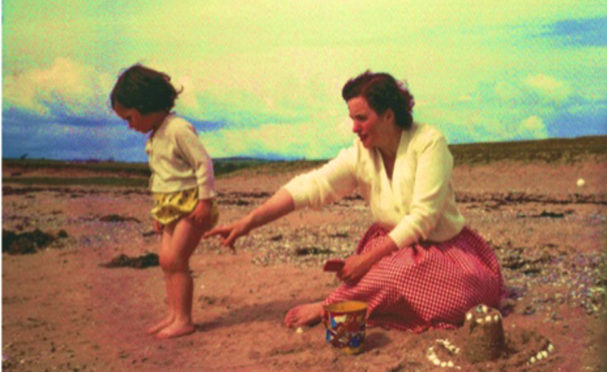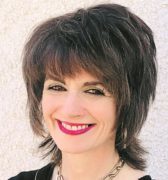My mother’s ghost whispers to me as I push the supermarket trolley past the Mother’s Day cards – no need for those now – hovers on my shoulder as I rummage for mushrooms in the fruit and veg.
“You have to eat a certain amount of dirt before you die,” I hear her say airily, which was her excuse for half a ton of soil in her mushroom soup. She was funny, illogical, at times hilariously snotty. “Mad Moll,” my brother dubbed her. “Good things come in little bundles,” she was once told by a small woman she was less than fond of. “And poison in small bottles,” my mother murmured.
Down the confectionery aisle. “Those,” she would have said, pointing to the dark chocolate. Her children knew what to buy her on Mother’s Day. Yellow tea roses. Black Magic chocolates – the real ones, before the current candle-wax imposters took over. A shirt-waister dress from Marks and Spencer. “Give us a twirl,” my dad would say indulgently, and Moll would sashay down the council house living room like it was the Milan catwalk. Not that little tokens of her six children’s devotion, like flowers, chocolates and dresses, were always embraced with proper, motherly adoration. “I should have kept rabbits,” she was fond of saying. “At least I would have had a fur coat by now.”
Of course, she didn’t mean it. Well actually, she did a bit. But not much and not often, I think, reaching for the low-fat spread. (“What are you buying THAT for?” demands her ghost. “What’s wrong with butter?”) The fact is that Moll was a mother because, like most of us, she was lucky enough to have choice. It’s the things in life that we don’t have choice over that cause us most pain. When a parent dies, it is like being led where you would rather not go, forced into membership of a club you would rather not belong to. The Mother’s Day cards, the sea of supermarket blooms, are little stabbing reminders of what is gone but not forgotten.
But increasingly in recent years, in those painful moments of peering in the window of the club I got reluctantly kicked out of, I spare a thought for those who are peering in a different window of the same building: the women who never got to choose to be a mum. The women whose sadness is that while they once gave a Mother’s Day card, they will not receive one in return.
According to NHS figures, infertility affects one in seven couples, around 3.5 million people in the UK. The emotional pain, according to researchers, is intense: feelings of sadness, anger, and lack of fulfilment. A friend once told me that being childless made him feel his life was meaningless; there would be nothing of him left behind.
I can’t honestly say I feel like that about my children because I don’t really see them as part of me in that sense. They are totally their own people. Though just occasionally I frighten my daughter when she says with malicious glee that I am turning into Moll. “Be very careful,” I hiss. “In thirty years, you will look in the mirror and see ME.” That wipes the smirk off her face.
And then there are those who never knew their real mum; and those have lost a child, an experience psychologists say is one of the most traumatic an adult can face. Manoeuvring the trolley round a screaming child (“Tut, tut,” says primary teacher Moll’s ghost. “What a naughty little boy!” Though actually, naughty little boys were her favourite), I think of the ghost parents and ghost children we all carry. Is every day like this for those who are childless but would like to be a parent? For those who never had, or lost, a child? Other people’s normal living – the screaming child, the elderly parent – is simply a reminder of the absence in their lives.
The truth is that being a parent is full of stresses and strains, of compromise and sacrifice, and every family has its fractures and its pain, but for those with no choice that imperfection seems, somehow, perfect. It is so easy to dismiss normality until we lose it.
This Mother’s Day I will, as always, miss Moll. Even her infuriating lack of logic. What are you talking about poison in small bottles for? I asked her. You’re tiny!” Moll, I remember, was outraged. “I am NOT small,” she said, drawing herself up to her full height of not quite 5ft 3.
Back past the card stand – another little stab of pain – to the checkout. Some yellow roses in my trolley for Mother’s Day, in her memory, and always, always her insouciant voice in my ear. For those who have only wanted but never had, I guess the ghost is a little more elusive. I am lucky because Moll’s voice is still remarkably clear and vibrant. I carry her with me. Sometimes, I even take her shopping.
Catherine Deveney is an award-winning investigative journalist, novelist and television presenter

